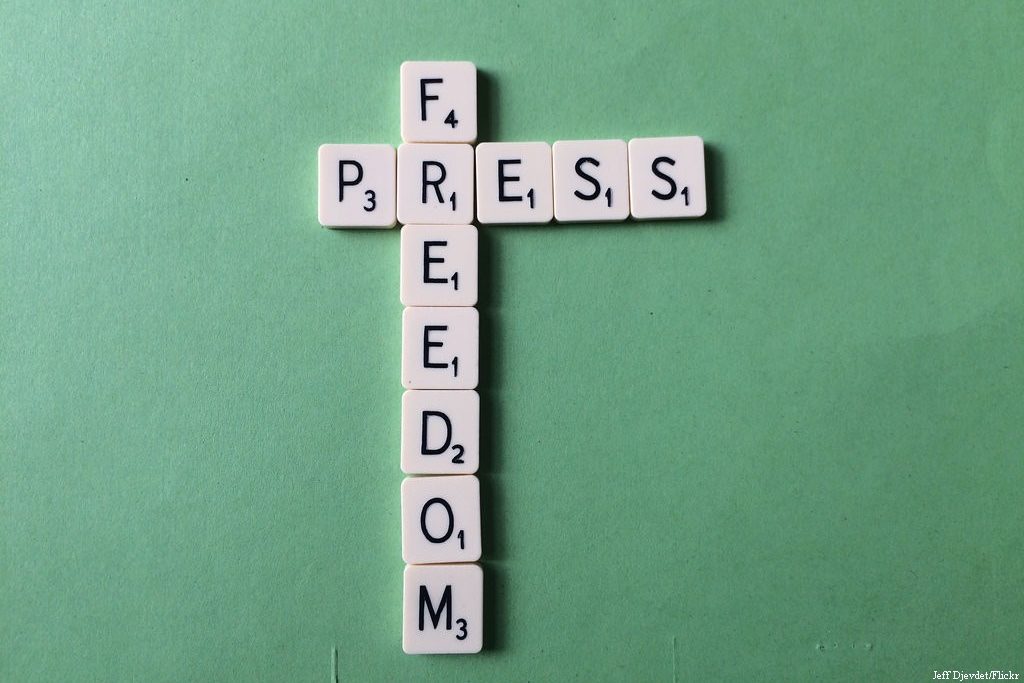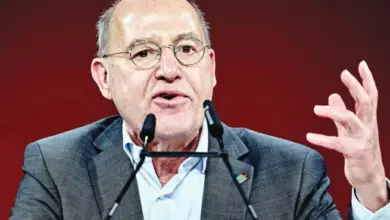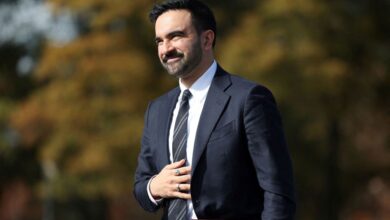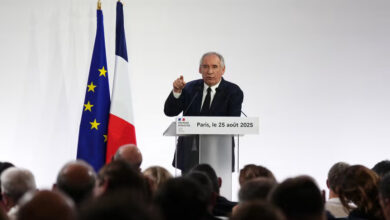
The Egyptian Nobel Prize-winning author Naguib Mahfouz wrote in his novel ‘Heart of the Night’, that ‘Politics is a spacious word; its charm is distributed among all sects. Politics is life’.
It is a quote worth remembering, as politics is indeed life, and affects all life. Politics determines how we live not just politically, but also socially and economically. Yet in the Arab world, the political arena is often an echo chamber, repeating the same tired slogans and policies that have been utilized for decades. Politics is not practiced in the way it should be, with constructively critical debate, the raising of ideas, and the possibility for alternatives.
Instead, the very concept of politics in the region has become tarnished by an absence of real politicians and statesmen, as well as analysts, writers, and thinkers willing and able to push for more inclusive politics. In short, a lack of a vibrant political ecosystem. As veteran US diplomat Henry Kissinger once quipped: “Ninety percent of the politicians give the other 10 percent a bad reputation.”
In the Arab world, even that 10 percent is elusive. Decision-making in the region is typically made by an individual, or a small group that is not true politicians. The big problem is ultimately accountability.
Not being able to hold the political class accountable for their actions has led to political crises, and a loss of trust between the people and politicians. What we have, as the events since the so-called Arab Spring a decade ago has shown, is “politicians without an audience” or “masses without politicians”.
This is because there is no space provided for a new politics to emerge. Most Arab politicians are ‘de facto’ politicians hailing from political dynasties, the military or the elite. Entering politics is seen as a ‘right’, rather than as a calling requiring the actual support of the public.
Some Arab political organizations that do exist have either been in opposition for too long to know how to rule effectively once in power, or have become used to operating in the shadows, not in a transparent manner that enables democratic accountability. Others that are predominantly religious have a limited base that inevitably excludes secular-minded citizens and restrict freedom of thought through adherence to their beliefs and traditions.
The Arab political class needs to foster political dynamism to create a more constructive ecosystem that develops rather than hinders societies. To do so firstly requires overcoming fear of criticism, which has largely been achieved by silencing dissent, even constructively critical dissent. If politicians are surrounded by ‘yes men’, which can extend to the public, avenues for change are curtailed.
A free press is therefore essential to have different voices and give confidence to those with new ideas to come forward. A free press is also necessary for exposing injustice and corruption, issues that have plagued the region for decades, and in monitoring government performance. Civil society also needs to be allowed to flourish, with actors engaging with and advising the government on policies, rather than being seen as another threat to power.
Such developments cannot come about without creating the conditions to actually create politicians. This means allowing and enabling politics at a student level, especially at universities, for the training of future politicians in the arts of debating, rhetoric, persuasion, policy development, and statecraft.
If we look around the world, particularly in Europe, North and South America, we find Arabs involved in politics, be it in think-tanks, universities or as elected politicians, in high and low office. Yet there is a reluctance to do so in the countries they came from. Expatriate Arabs do not return, armed with the political knowledge and experience they have garnered, to enter the fray of the Arab political arena.
The region cannot continue being stuck in the past with authoritarian ideas and aversion to change in the face of global change. The Middle East is a young region, with around half the populace under 30 years old, and these younger citizens want more inclusivity and a say in their future.
Conditions for a new politics – and politicians – must be created, hard though it will be. Recognizing and embracing media freedom to enable political freedom is a part of that, with an acceptance to hear the opinions of others, particularly the Arab youth.
If good politicians are not created and allowed to come to the forefront, the issues that hinder the region’s progress will be left un-tackled – result in a ticking political social time bomb, just waiting to go off. And the issues are immense, from chronic unemployment to social malaise, to environmental degradation and climate change.
Then there is the conflict and instability that has impacted the region for decades. Without peace, stability, and unity rather than division and violence, progressive politics cannot emerge.
This unfortunate, current state of affairs is reflected in Arab countries trailing the rest of the world (except for Africa) in environmental, social, and governance indicators. In an investment bank, Goldman Sachs’ latest rankings (2021) of 29 indicators, ranging from zero to 10 being the best performance, the Arab region’s average was 5.98, below the emerging market average of 6.45.
Such scores must be approved across the board, and good governance, and good politicians, are essential to deal with immediate challenges, like the Covid-19 pandemic, as well as long-term challenges.
If Arab leaders want to become true figures or heroes of contemporary historical developments, they must create space for true leaders and first-class politicians to emerge first. The region needs people who are capable, in the most critical moments, of making informed decisions that have the people’s best interests at heart.
If not, as we enter an uncertain future awash with problems, the Arab people will not be satisfied with half measures. More mass unrest, authoritarianism, and reactionary politics will be the outcome.
As Mahfouz wrote, ‘politics is life’, but politics also enables life, or should enable lives of meaning and engaged citizenship. Having decent politicians would be a good start to improving the livelihoods of hundreds of millions of Arabs.
____
Hasan Abdullah Ismaik is the Chairman of the investment company Marya Group, a global multi-billion dollar investment headquartered in Abu Dhabi, the capital of the UAE. In 2018, Ismaik launched the STRATEGIECS Think Tank, a research center specialized in qualitative strategic studies related to political, economic, social, and demographic transformations in the Middle East. For more than twenty years, he has been dedicated to presenting his views via published Op-Eds on security, peace, and the future of stability in the Middle East and the world.




